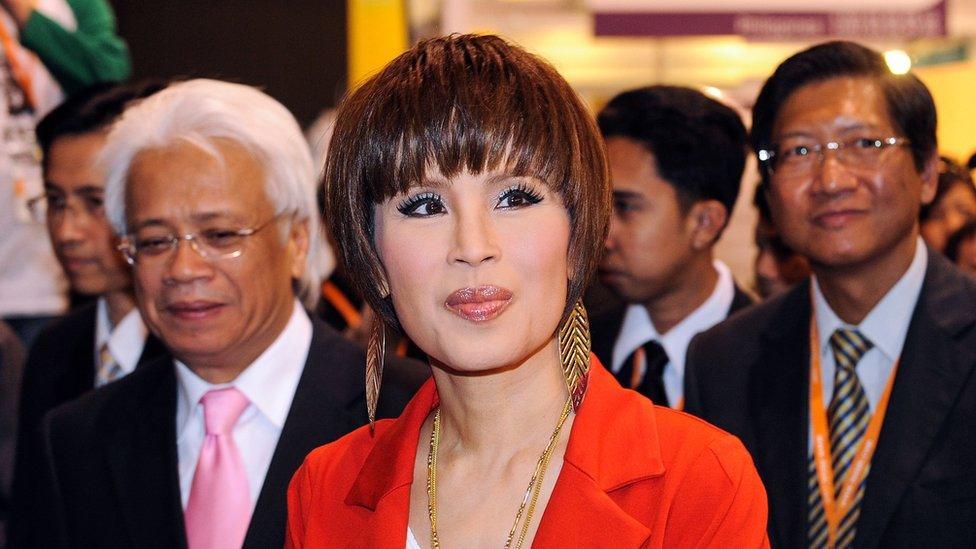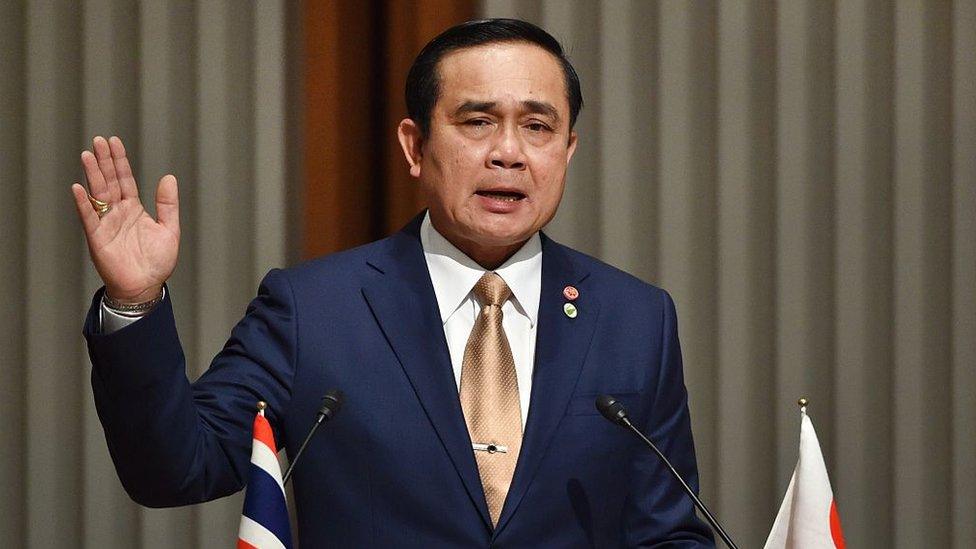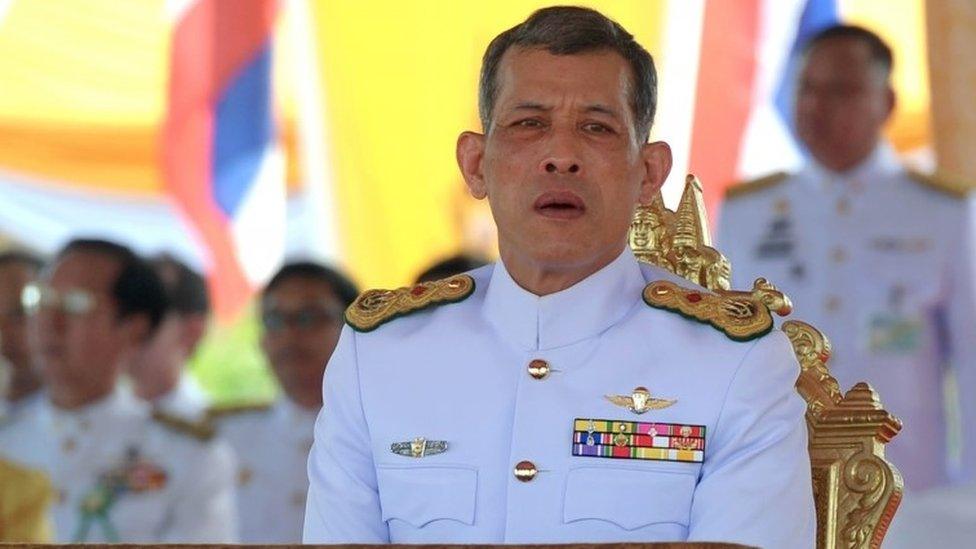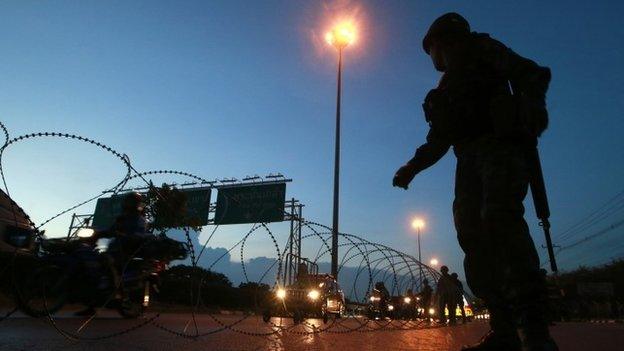Princess Ubolratana: Thai royal to stand as PM candidate
- Published

Princess Ubolratana Mahidol pictured in 2010
In an unprecedented move, the sister of Thailand's king has joined the race to be the country's next prime minister.
Princess Ubolratana Mahidol, 67, will stand for a party allied to divisive ex-prime minister Thaksin Shinawatra, according to registration papers.
Her decision breaks with the tradition of the Thai royal family publicly staying out of politics.
Thailand's election is scheduled to take place on 24 March.
The election is being closely watched as the first chance for Thailand to return to democracy after five years under military rule.
Who is Princess Ubolratana Mahidol?
Born in 1951, Princess Ubolratana Rajakanya Sirivadhana Barnavadi is the oldest child of Thailand's beloved late King Bhumibol Adulyadej. He died in 2016.
She attended the Massachusetts Institute of Technology and after marrying an American in 1972, she gave up her royal title. After her divorce she returned to Thailand in 2001 and once again started participating in royal life.
The princess engages actively in social media and has also starred in several Thai movies.
She has three children, one of whom died in the 2004 tsunami. The other two now also live in Thailand.
The princess has registered for the Thai Raksa Chart party, which is loyal to the controversial Shinawatra family that has dominated Thai politics for years.
In an Instagram post on Friday, Princess Ubolratana reiterated that she had relinquished all her royal titles and that she now lives as a commoner.
She said she wanted to exercise her rights as an ordinary citizen by offering her candidacy for prime minister. She said she would work with all sincerity and determination for the prosperity of all Thais.
King Vajiralongkorn has not made any public comments about his sister's entry into politics.

Thai politics upended
by the BBC's Jonathan Head in Bangkok
Thai politics has taken many bizarre turns in recent years. The submission of King Vajiralongkorn's elder sister as a prime ministerial candidate is one of the strangest, and turns politics on its head.
If she is confirmed, it is clear that the strategy of the military faction which led the 2014 coup, in the name both of defending the monarchy and keeping pro-Thaksin forces out of government, is in pieces.
The constitution it drafted still gives it lasting influence over future governments. But a royal prime minister could help end the protracted political conflict which has troubled Thailand for the past thirteen years, forcing a reconciliation between the competing factions that the military government failed to bring about.
But it would also bring the royal family into the heart of government, undermining the official position that the monarchy stays above politics.

How are Thai people reacting?
Supporters of the princess are flooding Thai social media with the hashtag #LongLiveSlender.
According to local media outlet Khaosod, external, the hashtag is a reference to a television show the princess appeared in, in which she jokingly said would rather hear the phrase "Long Live Slender" - a reference to her appearance - rather than "Long Live your Highness".
Others compared her to other powerful historical and fictional female leaders.
Allow X content?
This article contains content provided by X. We ask for your permission before anything is loaded, as they may be using cookies and other technologies. You may want to read X’s cookie policy, external and privacy policy, external before accepting. To view this content choose ‘accept and continue’.

What's the wider context?
The March vote will be the first since current Prime Minister Prayuth Chan-ocha took power in 2014, overthrowing the democratic government and ousting ex-Prime Minister Yingluck Shinawatra, the younger sister of Thaksin Shinawatra.
Both Mr Shinawatra and his sister currently live in self-imposed exile but still remain a powerful force in Thai politics, with many in the country remaining loyal to them
In 2016, Thais voted to approve a new constitution created by the country's military leaders, which was designed to perpetuate military influence and block Mr Thaksin's allies from winning another election.
But now that the princess has aligned herself with a party allied with Mr Thaksin, all bets are off the table, our correspondent says.
Prayuth, a former general who seized power in a military coup, also announced on Friday that he would be running for prime minister in the current election.
He will be running as a candidate for the pro-military Palang Pracharat party.

Thailand has some of the world's toughest royal defamation laws but technically the princess is not covered by them.
However, the royal family is revered in Thailand and rarely criticised, so there are questions around whether any other candidate would want to challenge a member of the royal family.
Analysts also say the lese majeste laws have been interpreted broadly, meaning media outlets may be careful in their coverage.
Thailand's military has a history of intervening in politics and has seized power 12 times since the end of the absolute monarchy - and the introduction of the first constitution - in 1932.
- Published7 April 2017

- Published22 May 2014
